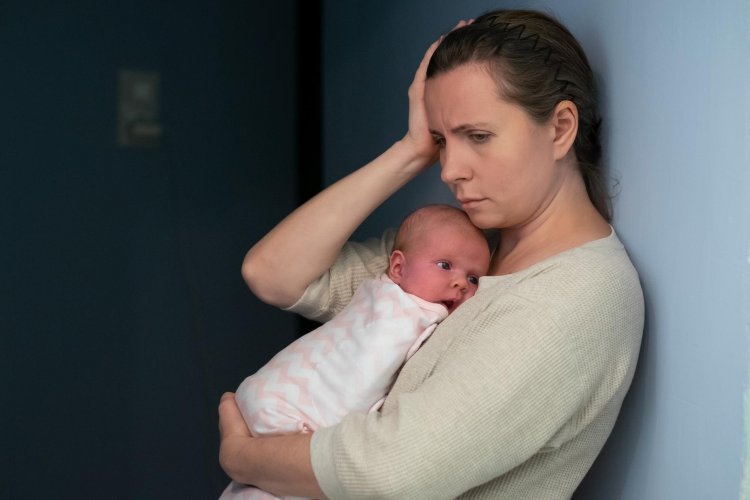Postpartum Depression: Understanding, Symptoms, and Treatment
Postpartum depression (PPD) is a significant mental health condition that affects women after childbirth. Also known as postnatal depression, this condition can have serious consequences for both the mother and the child if left untreated. Understanding its causes, symptoms, and treatment options is crucial for providing support to those affected and promoting maternal and infant well-being.

What is Postpartum Depression?
Postpartum depression is a type of mood disorder that occurs in women following childbirth. While it is natural for new mothers to experience mood swings, feelings of sadness, and anxiety after giving birth, postpartum depression is more severe and long-lasting. It can interfere with a woman's ability to care for herself and her baby and negatively impact her overall quality of life.
Causes of Postpartum Depression
The exact causes of postpartum depression are not fully understood, but it is believed to be a combination of biological, hormonal, psychological, and environmental factors. Some potential contributors include:
- Hormonal Changes: Fluctuations in hormone levels, particularly estrogen and progesterone, following childbirth may contribute to mood disturbances.
- Genetic Predisposition: Women with a family history of depression or other mood disorders may have a higher risk of developing postpartum depression.
- Psychological Factors: Stressful life events, relationship problems, financial difficulties, and lack of social support can increase the risk of postpartum depression.
- Previous Mental Health Issues: Women with a history of depression, anxiety, or other mental health disorders are more susceptible to developing postpartum depression.
Symptoms of Postpartum Depression
Postpartum depression can manifest in various ways, and its symptoms may differ from one woman to another. Common symptoms include:
- Persistent feelings of sadness, hopelessness, or emptiness
- Loss of interest or pleasure in activities once enjoyed
- Changes in appetite or weight
- Sleep disturbances (insomnia or excessive sleeping)
- Fatigue or loss of energy
- Difficulty bonding with the baby
- Irritability or anger
- Feelings of worthlessness or guilt
- Difficulty concentrating or making decisions
- Thoughts of harming oneself or the baby
It's important to note that postpartum depression can occur anytime within the first year after childbirth, although it often develops within the first few weeks or months.
Effects of Postpartum Depression
Postpartum depression not only affects the mother but can also have consequences for the baby and the entire family. Some potential effects include:
- Impaired mother-infant bonding
- Developmental delays in the baby
- Increased risk of behavioral problems in children
- Strain on relationships with partners, family, and friends
- Decreased quality of life for the mother and the family as a whole
Treatment Options
The good news is that postpartum depression is treatable, and there are several effective treatment options available. These may include:
- Therapy: Psychotherapy, such as cognitive-behavioral therapy (CBT) or interpersonal therapy, can help women address negative thought patterns, learn coping strategies, and improve communication skills.
- Medication: Antidepressant medications, such as selective serotonin reuptake inhibitors (SSRIs), may be prescribed in moderate to severe cases of postpartum depression. It's essential to consult with a healthcare provider to weigh the risks and benefits of medication, especially for breastfeeding mothers.
- Support Groups: Joining a support group for mothers experiencing postpartum depression can provide validation, encouragement, and practical advice from others who have gone through similar struggles.
- Self-Care: Engaging in self-care activities, such as regular exercise, adequate sleep, healthy eating, and socializing with supportive individuals, can help alleviate symptoms of depression.
Postpartum depression is a serious but treatable condition that affects many women worldwide. By understanding its causes, recognizing the symptoms, and seeking timely support and treatment, women can overcome this challenge and experience a fulfilling motherhood journey. It's essential for healthcare providers, family members, and society as a whole to provide empathy, education, and resources to support women affected by postpartum depression and promote maternal and infant well-being.
Disclaimer:
The information provided in this article is for educational purposes only and should not be considered medical advice. If you have any health concerns or are experiencing symptoms, it is important to consult with a healthcare professional, such as a doctor or clinic, for proper diagnosis and treatment. Always seek the advice of your doctor or other qualified health provider with any questions you may have regarding a medical condition. Do not disregard professional medical advice or delay in seeking it because of something you have read in this article.
What's Your Reaction?





















